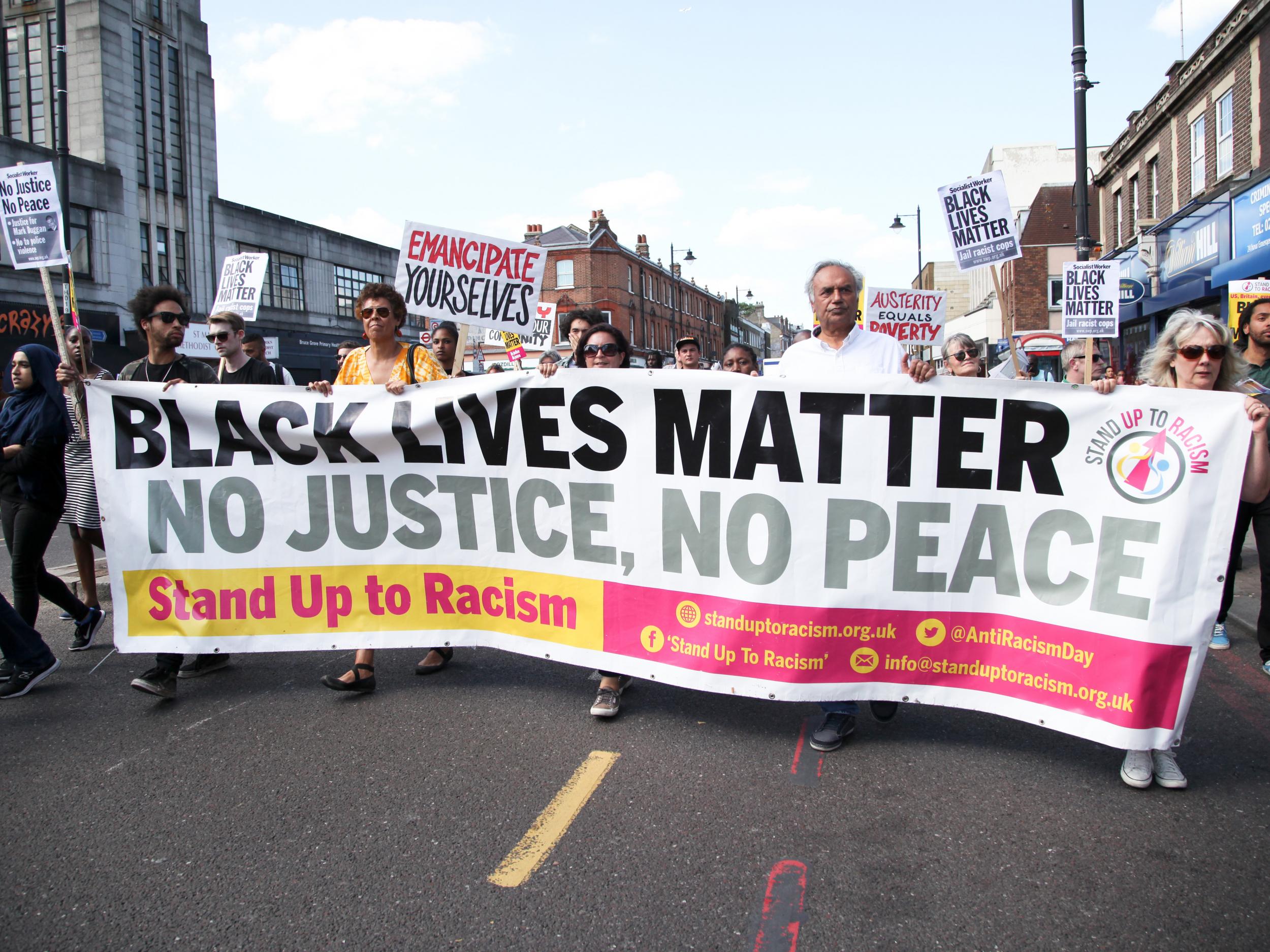US police forced to report on how many people they kill
Previously there was no federal data collection system to track police shootings - that is about to change

Your support helps us to tell the story
From reproductive rights to climate change to Big Tech, The Independent is on the ground when the story is developing. Whether it's investigating the financials of Elon Musk's pro-Trump PAC or producing our latest documentary, 'The A Word', which shines a light on the American women fighting for reproductive rights, we know how important it is to parse out the facts from the messaging.
At such a critical moment in US history, we need reporters on the ground. Your donation allows us to keep sending journalists to speak to both sides of the story.
The Independent is trusted by Americans across the entire political spectrum. And unlike many other quality news outlets, we choose not to lock Americans out of our reporting and analysis with paywalls. We believe quality journalism should be available to everyone, paid for by those who can afford it.
Your support makes all the difference.Police departments across the US will soon be required to report all deadly incidents involving their officers to federal authorities.
Proposals outlined by the Department of Justice set out a new system of reporting all "arrest-related deaths", including the number of people killed and the circumstances surrounding their deaths.
The rule would apply to almost 20,000 law enforcement agencies as well as medical examiners and coroners around the country.
The news could go some way in appeasing critics of police brutality, although the DoJ still has a long road ahead to bridging the gap between communities and law enforcement.
The reporting plan comes at the same time as the two-year anniversary of Michael Brown’s death. The 18-year-old was shot by police in 2014 in Ferguson, Missouri, and the death sparked protests and civil unrest.
In the two years that followed, there have been many more deaths, including 12-year-old Tamir Rice, Freddie Gray, Akai Gurley, Philando Castile and Alton Sterling, providing a catalyst for the Black Lives Matter movement.
There is currently no official database for the number of police deaths, but data published in the Injury Prevention Journal last month estimated that 55,000 people were killed or injured by US police during stop and searches and arrests – so-called “legal interventions” – in 2012.
Ted Miller, the author of the report, recently told The Independent that these number were unlikely to have lowered in the last four years.
“Police’s use of undue force – this isn’t a new problem which is exploding,” said Mr Miller. “This has been going on forever.”
Two previous attempts at recording data at a government level were introduced by the FBI: one was voluntary and one was considered mandatory, yet both systems had recorded different deaths, said Mr Miller. The systems were also marred by late, inaccurate and low levels of reporting.
He added that it was “outrageous” that the government was only likely to set up in 2016 what researchers and newspapers have been trying to do independently for years. He called for the new DoJ reporting system to not only focus on arrests.
The new system will gather information from open sources as well as police reports.
"It is a sad commentary that the Bureau of Justice Statistics has to resort to open source review because the nation's law enforcement agencies failed to report half of the arrest-related deaths that federal law required them to report," he said.
Matthew Fogg, a retired chief deputy US Marshal in Washington DC who won the largest ever employee Title VII discrimination lawsuit against the US department of justice in 1998, told The Independent that the planned national database was a step in the right direction to bring about more transparency and potentially more accountability.
“I think it should not just be for deaths. They should do it for any complaints of excessive force or abuse of police powers – that should all have a second or third layer of oversight,” he said. “We need a national database to weed the bad apples out."
“You can never have enough information, especially when you’re talking about public trust,” he added.
The new arrest-related death programme will be open to public consultation until October.
Police will be required to submit one report for the whole of 2016, and starting next year, will be asked to send in a report every quarter.
A spokesperson for the Department of Justice could not be immediately reached.
Join our commenting forum
Join thought-provoking conversations, follow other Independent readers and see their replies
Comments